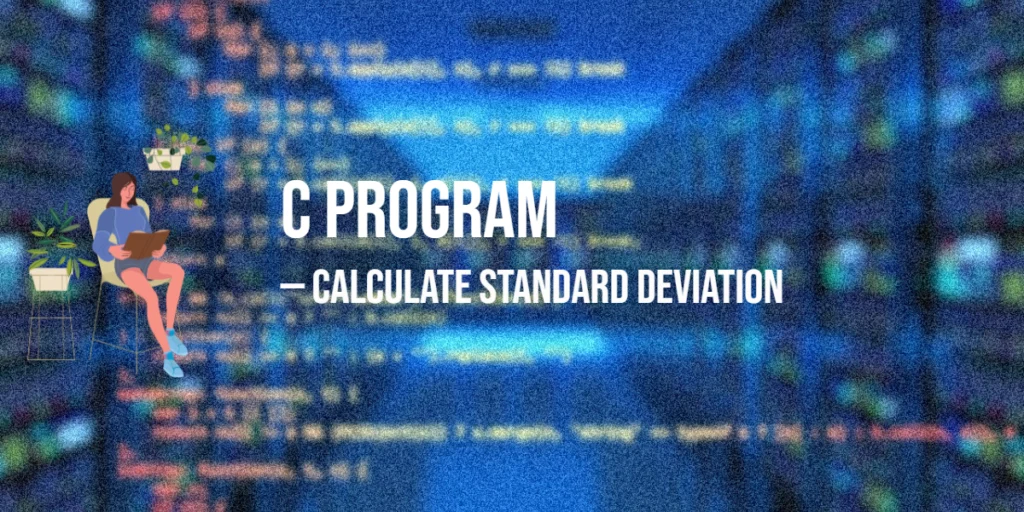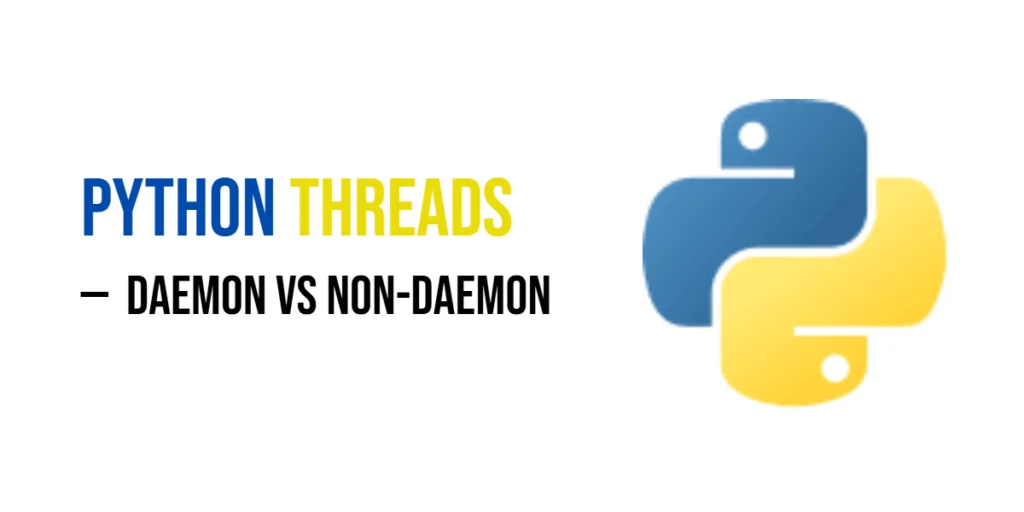Calculating the standard deviation of a set of numbers is a common statistical operation. Standard deviation measures how spread out the numbers are from the mean. In C, we can implement this using arrays, loops, functions, and pointers for efficient computation.

with hands-on learning.
get the skills and confidence to land your next move.
Program 1: Using Loops
The simplest approach uses arrays and loops to calculate the mean, variance, and standard deviation.
#include <stdio.h>
#include <math.h>
int main() {
int n, i;
double sum = 0, mean, variance = 0, stddev;
printf("Enter the number of elements: ");
scanf("%d", &n);
double arr[n];
printf("Enter %d numbers: ", n);
for (i = 0; i < n; i++) {
scanf("%lf", &arr[i]);
sum += arr[i];
}
mean = sum / n;
for (i = 0; i < n; i++) {
variance += (arr[i] - mean) * (arr[i] - mean);
}
variance /= n;
stddev = sqrt(variance);
printf("Standard Deviation: %.2lf\n", stddev);
return 0;
}This method clearly shows the step-by-step calculation of mean, variance, and standard deviation using loops.
Program 2: Using Functions
For modularity, we can create functions to calculate mean and standard deviation.
#include <stdio.h>
#include <math.h>
double calculateMean(double arr[], int n) {
double sum = 0;
for (int i = 0; i < n; i++) sum += arr[i];
return sum / n;
}
double calculateStdDev(double arr[], int n) {
double mean = calculateMean(arr, n);
double variance = 0;
for (int i = 0; i < n; i++) {
variance += (arr[i] - mean) * (arr[i] - mean);
}
variance /= n;
return sqrt(variance);
}
int main() {
int n;
printf("Enter the number of elements: ");
scanf("%d", &n);
double arr[n];
printf("Enter %d numbers: ", n);
for (int i = 0; i < n; i++) scanf("%lf", &arr[i]);
double stddev = calculateStdDev(arr, n);
printf("Standard Deviation: %.2lf\n", stddev);
return 0;
}Using functions improves readability, reusability, and maintainability, especially for larger programs.
Program 3: Using Pointers
Pointers can also be used to traverse the array, which demonstrates another way of accessing elements in memory.
#include <stdio.h>
#include <math.h>
int main() {
int n;
printf("Enter the number of elements: ");
scanf("%d", &n);
double arr[n];
double *p;
double sum = 0;
printf("Enter %d numbers: ", n);
for (p = arr; p < arr + n; p++) scanf("%lf", p);
for (p = arr; p < arr + n; p++) sum += *p;
double mean = sum / n;
double variance = 0;
for (p = arr; p < arr + n; p++) variance += (*p - mean) * (*p - mean);
variance /= n;
double stddev = sqrt(variance);
printf("Standard Deviation: %.2lf\n", stddev);
return 0;
}This method highlights pointer traversal while computing the mean and variance, emphasizing C’s memory-level operations.
Program 4: Using a Predefined Array
This approach calculates the standard deviation from a set of numbers already provided in the program. It eliminates the need for user input and demonstrates computation on a fixed dataset.
#include <stdio.h>
#include <math.h>
int main() {
double arr[] = {10.5, 20.0, 30.25, 40.75, 50.0};
int n = sizeof(arr) / sizeof(arr[0]);
double sum = 0, mean, variance = 0, stddev;
// Calculate sum
for (int i = 0; i < n; i++) {
sum += arr[i];
}
mean = sum / n;
// Calculate variance
for (int i = 0; i < n; i++) {
variance += (arr[i] - mean) * (arr[i] - mean);
}
variance /= n;
stddev = sqrt(variance);
printf("Array elements: ");
for (int i = 0; i < n; i++) {
printf("%.2lf ", arr[i]);
}
printf("\n");
printf("Standard Deviation: %.2lf\n", stddev);
return 0;
}This program shows a direct computation of standard deviation when the dataset is predefined. It calculates the mean, variance, and standard deviation using simple loops, just like the previous examples. This is ideal for testing or fixed datasets.
FAQs
Answering common questions about calculating standard deviation in C.
1. Can this program handle negative numbers?
Yes. Standard deviation calculations work with both positive and negative numbers.
2. What if the array is empty?
You should check that the number of elements is greater than zero before calculating; otherwise, division by zero occurs.
3. Can I calculate standard deviation for integers only?
Yes, but using double is recommended to retain precision in calculations.
4. What’s the difference between population and sample standard deviation?
The programs above calculate population standard deviation (divide variance by n). For sample standard deviation, divide by n - 1.
5. Can I handle dynamic input size?
Yes, you can use malloc() to allocate memory for a user-defined number of elements instead of fixed-size arrays.
6. Can I calculate standard deviation from a predefined array?
Yes. Program 4 demonstrates that the mean, variance, and standard deviation can be calculated directly from a fixed dataset, eliminating the need for user input.
Conclusion
Calculating standard deviation in C is an important task for statistical analysis and data processing. Using loops, pointers, functions, and predefined arrays allows you to compute it efficiently while keeping the code readable and modular.
We explored four methods:
- Simple loops with user input
- Function-based modular calculation
- Pointer traversal
- Predefined array computation
Mastering these approaches equips you to handle dynamic datasets, fixed datasets, and advanced statistical computations in C programming while maintaining clean and efficient code.
References & Additional Resources
A curated collection of textbooks, tutorials, and documentation for learning C programming and statistical calculations such as standard deviation.
- Kernighan, B.W., & Ritchie, D.M. (1988). The C Programming Language (2nd Edition). Prentice Hall – The classic foundational text covering core C programming concepts including arrays, functions, and pointers.
- Boyce, R., & Horton, S. (2013). C Programming: A Modern Approach. W. W. Norton & Company – Comprehensive guide with practical examples and modern approaches to C programming.
- GeeksforGeeks: Standard Deviation in C – Step-by-step explanation with code examples for computing standard deviation in C.
- Tutorialspoint: C Standard Deviation Program Example – Beginner-friendly guide to implementing standard deviation in C programs.
- Programiz: C Programming Examples – Collection of practical C programs, including array and statistical operations.
- cplusplus.com: math.h Library Reference – Official documentation for mathematical functions like
sqrt(), useful in calculating standard deviation and other statistics. - Stack Overflow: Standard Deviation in C – Community discussion with multiple approaches for computing standard deviation efficiently.







